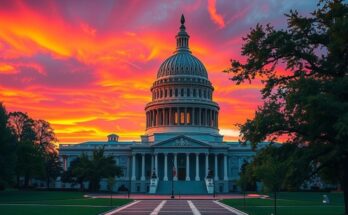President Bola Tinubu stressed the urgent need for a credible census in 2025 to guide national planning and development, highlighting the historical context of censuses in Nigeria and the significance of accurate data. The National Population Commission outlines the benefits of conducting regular censuses, which include informed resource allocation and enhanced policy formulation. Tinubu’s administration plans to introduce biometric and digital elements, emphasizing the necessity of obtaining reliable data, while also addressing budget concerns amid upcoming elections in 2027.
Nigeria’s need for a reliable census by 2025 is imperative for effective national planning and development. President Bola Tinubu emphasized that accurate population data is essential for managing employment, agriculture, and various sectors, stating, “We must ascertain who we are, how many we are, and how to manage our data.” The lack of reliable population figures hampers progress and economic planning.
The historical context of Nigeria’s censuses dates back to 1866 under British colonial rule, with subsequent counts occurring in 1871, 1881, 1901, and later years leading to the last census in 2006. The importance of conducting regular national population and housing censuses cannot be overstated, especially with the National Population Commission (NPC) outlining thirteen key benefits. Accurate census data is crucial for informed economic assessments and government planning, aiding in identifying special populations such as those living with disabilities.
Census data plays a vital role in resource allocation, helping to forecast educational needs and improve social programs. Additionally, it informs disaster recovery planning, healthcare needs, and security provisions by assessing population demographics. Such data enables targeted policy formulation, thus improving living standards and facilitating the realization of Sustainable Development Goals (SDGs).
Notably, President Tinubu has expressed commitment to revamping the census with biometric and digital components, collaborating with agencies to optimize resources amid financial constraints. The NPC is preparing for the census by acquiring necessary technology while facing challenges due to reduced international development aid, which previously covered a significant portion of census costs.
The last administration’s attempt to conduct a census in 2023 was hindered by timing issues related to political elections, underscoring the need for a deliberate approach to the 2025 census. The projected budget for this census is considerably higher at N942 billion, but concerns remain about potential budget padding. Given the rising costs attributed to currency devaluation, it is crucial to undertake this project soon to avoid exponentially higher expenses in the future.
Funding for the census could potentially draw from the federation account, with contributions from state and local governments, emphasizing that the accuracy and reliability of the census are paramount. While cost-control measures are encouraged, the quality and credibility of the census must not be compromised, ensuring that the outcomes gain nationwide acceptance without controversies.
In conclusion, Nigeria’s urgent need for a national population and housing census by 2025 cannot be overlooked. This census is critical for ensuring accurate data that supports effective governance, economic planning, and social programs. It is essential that the government secures adequate funding and implements stringent measures to uphold the credibility and reliability of the census, setting a foundation for sustainable development and enhanced national planning efforts.
Original Source: punchng.com




